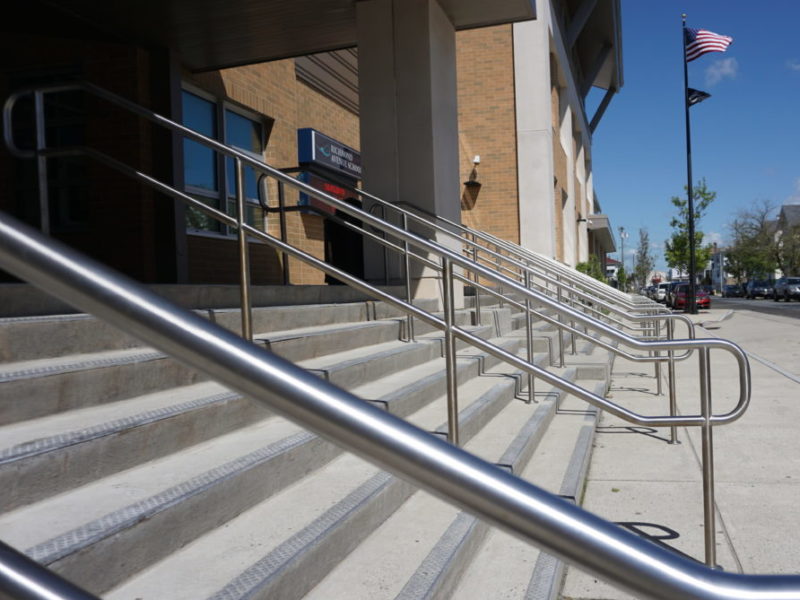The Hispanic Association of Atlantic County wants to know why the Atlantic City Board of Education plans to transfer the city’s first Latina principal to an elementary school, according to a letter sent by the Alliance to the board.
New Jersey Schools Under Pressure as Demand Increases for Bilingual, ESL Classes
|
There was a time a little over a decade ago when Claudia Velasquez was in the seventh grade and she didn’t speak any English. She is now attaching paper on a flip-board, preparing to give a class in English, in the same red-brick Pleasantville school on Washington Avenue where she learned the language.
More about: Education, ACLU, Atlantic City, bilingual teaching, ESL, LEP, limited English, New Jersey school funding
Atlantic County Kids Could Lose Hundreds Of After-School Places
|
About 450 children and 27o adults and parents could lose access to federally-funded after-school services provided in Buena, Atlantic City and Pleasantville school districts. The services, offered under the 21st Century Community Learning Centers Program, are among those that would be affected by President Trump’s proposal to end $1.2 billion in grants for after-school and summer programs.
There are three sites in Atlantic County that offer the program, which also provides after-school care for individuals with disabilities. This is a roundup of the local 21st Century Community Learning Centers Program, according to details from New Jersey’s Department of Education:
More about: Education, after-school, Atlantic City, buena, pleasantville
A Real-Life Sustainability Experiment At Stockton
|
Imagine knowing that when you graduate from college, you have the skills to run your own profitable farming business. All you need to start is a small loan for equipment and a patch of land – as little as an acre would do. It might seem like a fantasy for a lot of today’s undergraduates who feel buried under student loans and job uncertainty. But a project at Stockton University is working toward giving students a real-life, tangible profession. “Land is not hard to get to farm – it’s hard to get to own, but it’s not hard to get to farm,” said Ron Hutchison, an associate professor of sustainability and biology who also helps coordinate Stockton’s Sustainable Farm.”We’d really like to send our students out with a checklist of things that they need: If you can get a loan from the bank for $40,000 and you have access to land, here’s the tools you need, have at it.”
More about: Business, Education
Comparing Rowan and Stockton Universities
|
Two of South Jersey’s universities are in expansion mode and we thought it would be interesting to compare and contrast their vital statistics, side by side, using data from the state budget. You can see that enrollment is up at both universities (so are fees) and state-funded positions are also up at Rowan University. It will be interesting to see whether the chatter around Rowan’s plans to expand in Atlantic City comes to anything, since Stockton University is rolling out ever-bigger plans for the city. On the one hand, expansion could bring more jobs and investment to the area, but on the other hand these institutions don’t pay property taxes. Since we wrote about Stockton’s plans to further expand in Atlantic City, we’ve also heard more people questioning the university’s debt load and its tuition costs, so we looked at the numbers. The amount of state support that Rowan receives is much greater – my guess is that this is tied to Rowan’s medical programs, but it’s not clear. And Stockton is slightly more expensive than Rowan, by these measures.
More about: Education, debt, rowan university, state budget, Stockton University, tuition fees
Socktober Surprise
|
Students at Frog Pond Elementary School in Little Egg Harbor donated 821 pairs of socks to Covenant House, a homeless shelter for homeless youth, in Atlantic City earlier this month. The idea to collect the socks came fromKerry Gunn, who teaches fifth grade at the school and showed her students a facebook video by Kid President Robby Novak, who pointed out that socks (according to some metrics) are among the most-needed and least-donated clothing items. Gunn said she presented the idea to her fellow fifth-grade teachers who supported it. “We called this service project, ‘Socktober–Kids Helping Kids,’” she said, in a statement. In response to a series of questions (“Who donated the most socks? Why’d that person have so many socks?






